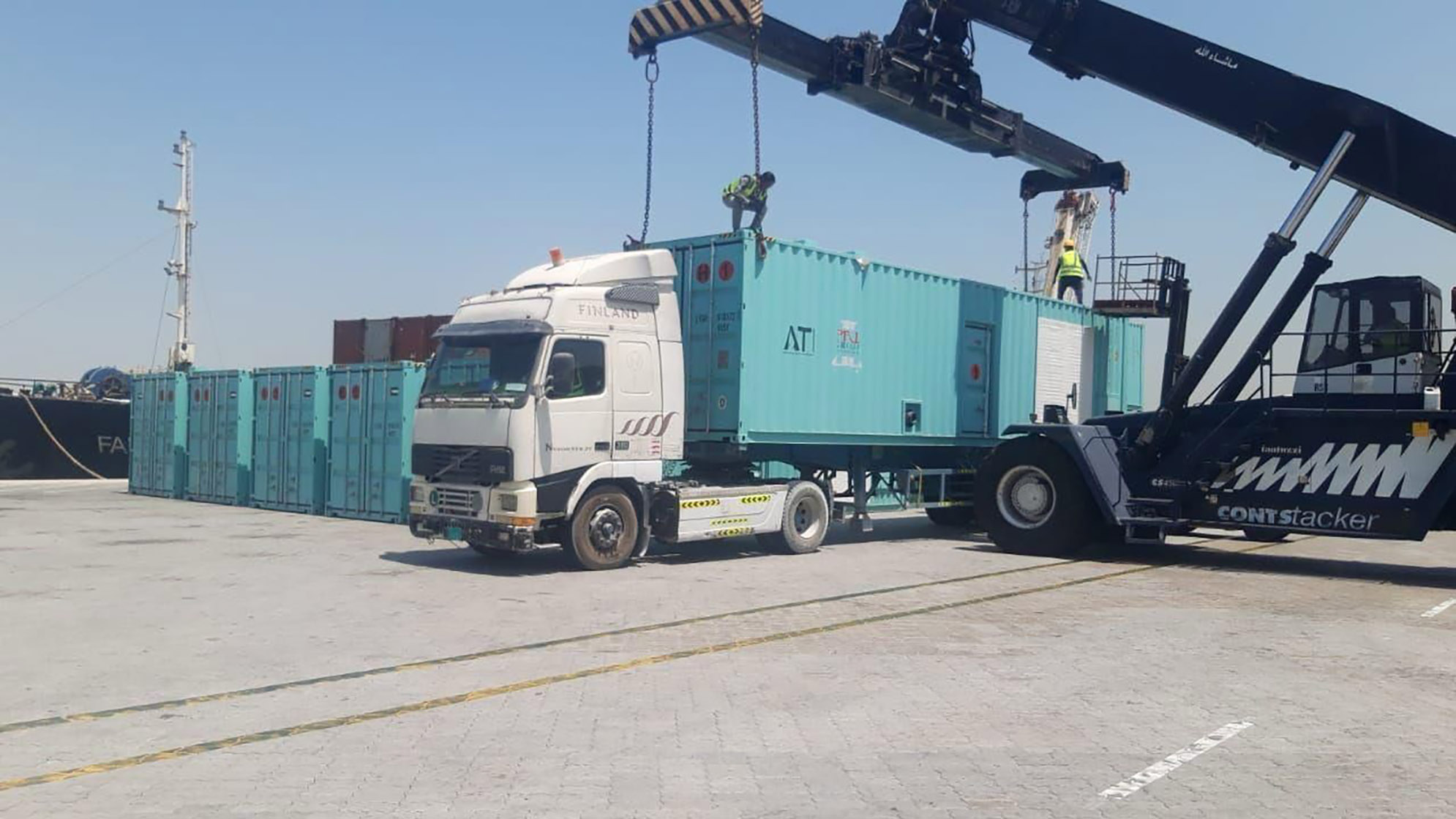A total of 12 mobile desalination units imported from the United Arab Emirates are now in operation, with one more set to enter service soon, and more to be imported next year, the water development department said on Sunday.
“The implementation of measures to address water scarcity is progressing rapidly,” it said, adding that the units which are set to arrive next year will “strengthen the balance of Cyprus’ water supply and address the effects of the prolonged drought”.
“Mobile desalination units have already been put into operation and actions are being implemented which increase the available quantities of water, reduce losses within the network, and limit waste, without affecting people’s quality of life.”
It said that a desalination unit installed in the Paphos district village of Kissonerga is now producing 1,000 cubic metres of water per day, with a second unit producing another 1,000 cubic metres of water per day will be installed “within the next few days”.
Additionally, it said, a total of 5,000 cubic metres of water per day’s worth of extra capacity would be added by the end of September.
Meanwhile, it said that at the Moni power station in Limassol, desalination units from the UAE are now producing 15,000 cubic metres of water per day.
As well as the import and installation of desalination units, the department said it is engaging in other “interventions” aimed at “strengthening the water supply”.
These interventions, it said, included the drilling of new boreholes and projects aimed at reducing the amount of water “lost” in the network, with the latter being carried out in collaboration with district governments and costing €10.5 million so far.
The first mobile desalination unit from the UAE had entered service last month, with acting water development department director George Kazantzis describing the units’ installation as an “extremely complex process which took place in limited time”.
Of the water itself, he said that whatever is not required by consumers in the Limassol district will be transferred to the southern conveyor and channelled to the Nicosia, Larnaca, and Famagusta districts, which are all currently receiving water from the Kouris reservoir, northwest of Limassol.
As such, he said, he hopes to reduce the supply of water from the reservoir to the Nicosia, Larnaca, and Famagusta districts “so that more water can remain in Limassol”.
The arrival of the desalination units from the UAE was announced by President Nikos Christodoulides in April, with government spokesman Konstantinos Letymbiotis later saying there will be “no risk” of there being any water cuts in Cyprus this summer as a result of the units’ forthcoming arrival.
Christodoulides had stressed that the units will be provided “free of charge”, a fact he said “underlines the importance of relations in the context of the country’s foreign policy, and in matters of internal policy”.
However, not everyone has been impressed by the government’s direction of travel with regard to the issue of water.
Coastal engineer Xenia Loizidou earlier slammed the government’s plan to import mobile desalination plants as an “incoherent panic solution”.
She said the units are “of course a solution”, but that “to really solve the water problem, the first thing which needs to be done is to invest in infrastructure and proper management of uses”.
This, she said, must entail there being “no lawns and golf courses” and an “adaptation” of crops to plant those which are less water intensive.
“If with two accidents, Mavrokolympos and Kouklia, the entire state planning collapses, then we are clearly a country which is defenceless and this water policy has failed over time,” she said, referring to the draining of the Mavrokolympos reservoir and a fire at a desalination plant in the village of Kouklia.






Click here to change your cookie preferences